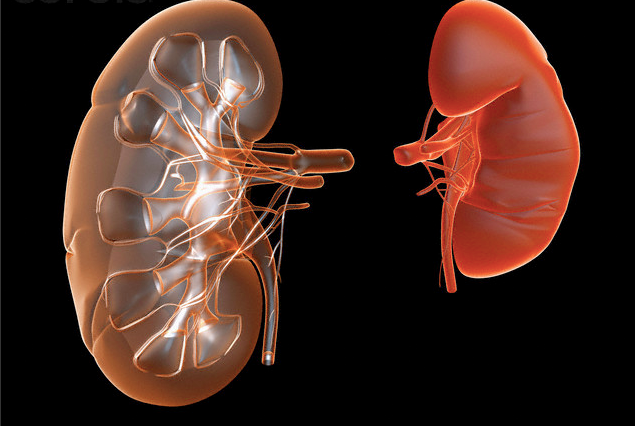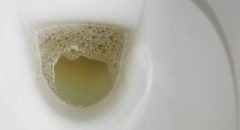What are the best ways to achieve greater kidney health? How much do you know about your kidneys?
What Are Kidneys?
The kidneys, two organs located on either side of your spine just above the waist, perform several life-sustaining roles. They cleanse your blood by removing waste and excess fluids, maintain the balance of salt and minerals in your blood, and help regulate blood pressure.
Each bean-shaped kidney is four to five inches long and contains about a million nephrons, which are like tiny pouches. Each nephron has a filter at one end, called a glomerulus, to filter your blood. Your overall kidney function can be measured by how quickly blood is filtered through these glomeruli. This measurement is called the glomerular filtration rate.
When the kidneys become damaged, waste products and fluid can build up in the body, causing swelling in your hands and feet, shortness of breath, and problems with urination. If left untreated, diseased kidneys may eventually stop functioning completely. Loss of kidney function is a serious -- potentially fatal -- condition.
RELATED: Eat These Fruits, Your Kidneys Will Thank You
The Role of Your Kidneys
- Maintain your body's balance of water and concentration of minerals such as sodium, potassium, magnesium, and phosphorus in your blood.
- Remove waste by-products from the blood after digestion, muscle activity, and exposure to chemicals or medications.
- Produce renin, an enzyme that helps regulate blood pressure.
- Produce erythropoietin, which stimulates red blood cell production.
- Produce an active form of vitamin D, needed for bone health.
RELATED: 15 Foods To Avoid When Your Kidneys Are In Trouble
How to Protect Your Kidneys
There are six steps you can take to help protect the health of your kidneys:
Step 1
Kidney health is mostly about prevention - learning which foods to eat and avoid, as well as talking with your doctor about the necessary diagnostic tests.
Drinking an adequate amount of water helps flush toxins and waste products from your body, reducing the risk of kidney stones and urinary tract infections.
It is also important to maintain a healthy diet. Maintaining a healthy diet consists of the following:
- Balanced Nutrition: Consume a well-balanced diet that includes a variety of fruits, vegetables, whole grains, lean proteins, and healthy fats.
- Watch Protein Intake: While protein is important, excessive consumption can strain the kidneys. Choose lean protein sources and avoid overconsumption of protein supplements.
- Limit Sugar and Refined Carbohydrates: High sugar intake can contribute to diabetes and obesity, which are risk factors for kidney disease.
Step 2
If you have diabetes, high blood pressure, or a family history of kidney failure, get your blood and urine checked for kidney disease.
Diabetes is a leading cause of kidney disease. It is important to work closely with your healthcare provider to manage your blood sugar levels and prevent kidney complications.
Step 3
High blood pressure can damage the blood vessels in the kidneys. Regularly monitor your blood pressure and take steps to keep it within a healthy range through lifestyle changes or medication if prescribed by a doctor.

Step 4
High sodium intake can raise blood pressure and strain the kidneys. Limit processed foods and use herbs and spices for flavor instead of salt.
Step 5
For those recently diagnosed with kidney disease, find out about the basics of kidney disease and what it means for you. Individual needs may vary, so it's always a good idea to consult with a healthcare professional before making significant changes to your diet, exercise routine, or medication. If you have existing kidney issues or concerns, your doctor can provide personalized guidance.
Step 6
Talk to loved ones with diabetes and high blood pressure about getting tested for kidney disease.
RELATED: 8 Signs Your Kidneys May Be Failing
When to see a doctor
If you have additional questions or concerns about how to protect your kidneys, always consult with your doctor. Your doctor can also help you make the following additional lifestyle changes to protect your kidneys and overall health:
- Maintain a Healthy Weight: Being overweight or obese can increase the risk of high blood pressure and diabetes, which can cause kidney disease. Aim for a healthy weight through a combination of a balanced diet and regular physical activity.
- Exercise Regularly: Regular physical activity can help control blood pressure, manage weight, and improve overall cardiovascular health, all of which are important for kidney health.
- Avoid Overuse of Painkillers: Long-term or excessive use of over-the-counter painkillers, such as NSAIDs (non-steroidal anti-inflammatory drugs), can harm the kidneys. Consult your doctor before using these medications regularly.
- Limit Alcohol Consumption: Excessive alcohol consumption can increase blood pressure and contribute to kidney damage. If you choose to drink alcohol, do so in moderation.
- Quit Smoking: Smoking can damage blood vessels and reduce blood flow to the kidneys, making them more susceptible to disease.
- Avoid Excessive Protein Supplements: High doses of protein supplements can strain the kidneys. Consult a healthcare professional before using any supplements.
- Manage Stress: Chronic stress can contribute to high blood pressure and other health issues that affect kidney function. Practice stress-reduction techniques such as meditation, deep breathing, yoga, or spending time in nature.
- Get Enough Sleep: Adequate sleep is important for overall health, including kidney function. Aim for seven to nine hours of quality sleep per night.















